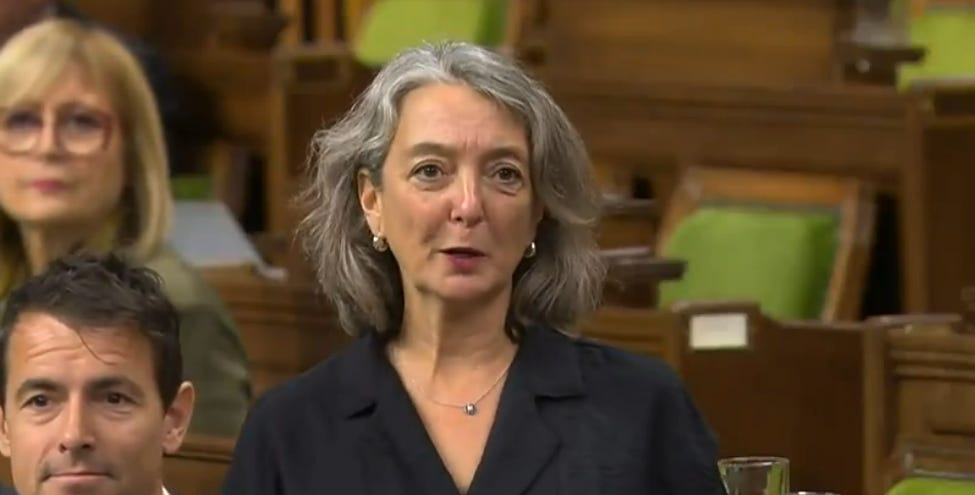Liberals press ahead with 2035 gas vehicle ban
The Liberal government is forging ahead with its plan to ban the sale of new gas-powered vehicles in the next decade, despite warnings from auto industry leaders and public opposition.
The Liberal government is forging ahead with its plan to ban the sale of new gas-powered vehicles in the next decade, despite warnings from auto industry leaders and public opposition.
Environment Minister Julie Dabrusin faced sharp criticism from Conservative MP Dan Mazier during a recent exchange in the House of Commons, refusing to provide any direct answers but insisting that the government intends to follow through on the ban.
The proposed mandate will prohibit manufacturers and dealers from selling new light-duty cars or passenger vehicles that are not zero emissions by 2035. By 2030, at least 50 per cent of all new light-duty vehicle sales within Canada must be zero-emission vehicles, with the target rising for subsequent years.
“We are making sure that EVs, which are actually a very strongly growing segment of the world economy for sales, we’ll be making sure Canadians have access to them,” said Dabrusin.
Mazier reminded Canadians that this would mean they would no longer be able to purchase any new gas-powered trucks, SUVs, or cars by 2035.
“The Liberals want to take away your vehicle choice and drive up costs,” he said.
Mazier added that Environment Canada had warned about the consequences of the sweeping ban, but the Liberals ignored the warnings.
When asked whether she had read her department’s regulatory impact analysis on the zero-emission vehicles sales mandate, Dabrusin said she had worked on it herself.
While Dabrusin seemed unable or unwilling to say how much the regulations would cost Canadians, Mazier reminded her that her own department estimated that incremental zero-emission vehicle and home charger costs would amount to $54.1 billion for Canadians.
Dabrusin celebrated what she called “rebates” to help purchase 546,000 zero-emission vehicles.
The Liberals’ zero-emission vehicles program, which incentivized over 546,000 cars, was paused in January 2025 after running out of funding. It was initially scheduled to run until March 31, 2025.
The program was initially allotted $300 million in taxpayer funds in the 2019 federal budget. Budget 2022 allotted an additional $1.7 billion in taxpayer funds to the program. Then, the Liberals pledged an additional $1.5 billion towards the program, meaning at least $3.5 billion in taxpayer funds have been dedicated to this electric vehicle subsidization so far.
The Parliamentary Budget Officer published a report showing that resuming the program would cost Canadians over $11 billion between 2025 and 2030.
Previous polling showed that the majority of Canadians are against the ban.
Previous studies have also highlighted that the electric vehicle mandate might not even be possible, as the power grid would not be able to support the new demand.
Leaders in the automotive industry have warned the Liberals continuously that the mandate is a bad idea.
“According to Environment Canada’s own analysis, the forthcoming regulation will have a disproportionate and negative impact on low-income Canadians, rural Canadians, and northern Canadians,” said Brian Kingston of the Canadian Vehicle Manufacturers’ Association.
According to Consumer Reports, electric vehicles have 79-per-cent more problems than gas vehicles. Additionally, electric vehicles can see more than a 40-per-cent decrease in range on cold winter days. As of December 2024, the average new electric vehicle costs $70,682, eight per cent more expensive than the average price tag of $65,219 for a new vehicle, according to Statistics Canada.






EV’s are not net zero! Ask the indigenous communities in northern Manitoba how net zero hydro electric power is. Never mind the mining for the products necessary for this.
Their goal, I believe, is not to sell vehicles at all, keeping us imprisoned in our 15 minute cities.
I cannot wait to see the elbows up crew when they find out that they can no longer afford a car